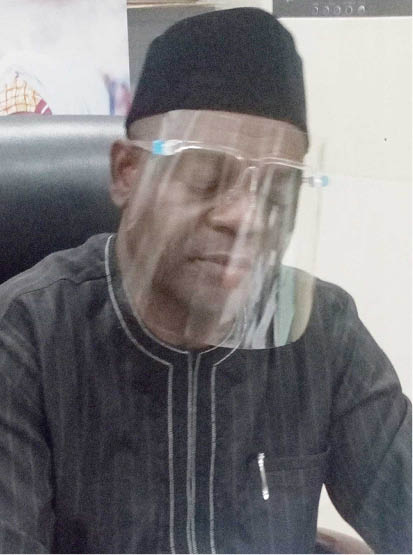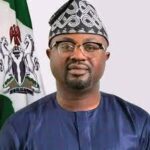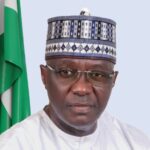The Permanent Secretary, Ministry of Education, Architect Sunny Echono, explains why the fixed deadline for teacher certification was not implemented.
The federal government had set December 31, 2019, as the deadline for teachers to get licensed by the Teachers Registration Council of Nigeria (TRCN) or they will not be allowed into the classrooms. What is the situation now?
TRCN management has been in touch with states, particularly, the states where the number of unqualified teachers is very high and we have got a huge response from them after which special diet for the examination was organized for 67,000 candidates as part of the preparation leading to the expiration of the guideline.
- COVID-19: FG reverses decision on school resumption
- FG to review size of embassies abroad, TAC scheme
We also received a request for the extension of the deadline to enable states to prepare for the transition and following dialogue with the affected states, we came to some understanding based on (1) a census of teachers in each state as well as the number of schools.
(2) Using international standards to determine the number of teachers expected in our schools and the number of pupils enrolled.
All of these were done before the COVID-19 pandemic which threw our plans in disarray.
We are starting the monitoring with six states and the first condition we gave the authorities there is to employ all the qualified teachers in their states.
And for the unqualified teachers, a special arrangement should be made to train them and once they meet the requirement, they should return to the classroom.
The second condition we gave the states is that we shall conduct a certification exam for them when they are ready and see the number of teachers that can return to classrooms and those that cannot.
Based on the agreement and the level of cooperation we received, we are willing to relax those measures.
For the purpose of our upcoming exams, we have not been enforcing the de-registration of schools.
But the honourable minister has articulated a proposal which we shall take to the National Council on Education and once approved; any school that does not have the minimum teacher-student ratio will not be allowed to take any external exams such as WASSCE and the National Common Entrance Examination.
Thus, states and private proprietors must ensure compliance because we cannot continue to leave children under the care of unqualified teachers.
We want to launch a conversion programme for candidates with non-education degrees where they will be trained in the skills needed for teaching, thereafter, they are guaranteed employment.
The third condition which is subject to the approval of the National Council on Education and the president is to prioritise education by attracting the best brains through a designed welfare programme.
Based on our plan, from next year, candidates willing to study education in higher institutions will be guaranteed automatic sponsorship either with scholarships or payment of stipend; they should actually be on salary Grade Level 04.
This is going to be a partnership between the states and federal government and in the end, the states will employ the graduates.
Also, science, mathematics and technical teachers, as well as those teaching in the rural areas, will have allowances.
The government has established six additional Federal Science and Technical Colleges (FSTCs). Why?
The demand for such colleges is huge and we have a national policy that says there should be at least one FSTC in each of the states of the federation and we realised that 20 states have these colleges and 16 do not have and because we could not build 16 at once, we decided to establish them one after the other.
We plan to build six in the first year, five in the second year and five in the third year.
The six for this year are almost at an advanced stage and the essence of the colleges is to promote Technical and Vocational Education Training (TVET).
Today, conventional academic qualifications are beginning to lose their value because people are no longer interested in them; the employers are interested in what an employee can do rather than the qualifications they have and the best way to address that is to have the technical institutions.
So, the additional impetus is going into sciences and TVET.
The federal government has also approved at a higher level, six new federal polytechnics between this year and next year and that is the next stage for graduates of the technical colleges.
We are working with the private sector, professional associations and the National Board for Technical Education (NBTE) and all those that are in the skills sector to galvanise and train the youths.
Many of these technical skills do not take long to learn including POP, carpentry, welding, masonry, fishery, animal husbandry, poultry etc.
So, all the jobless youth will be given relevant skills to contribute their quota to national development and earn income to feed their families.
We need to change public perception about vocational training because it is not only candidates who fail certificate exams that can pursue them; in many countries, plumbers and carpenters make more money daily than people doing white-collar jobs; people are not interested in monthly salaries.
There were times when parents were ashamed to see their children playing football but now that footballers are earning millions, well-to-do parents are paying for their children to learn how to play soccer.
We should not depend on foreigners to man critical areas in our construction industry; we must change that narrative especially with the millions of kids that are not gainfully employed.
That is the vision of Mr President and we will help him achieve it.
This programme is in partnership with the World Bank and as a ministry, we are expanding it through the National Skills Qualifications Framework and the president was impressed that he decided to constitute a National Skills Council headed by Vice President Yemi Osinbajo with the Minister of Education Adamu Adamu and businessman, Aliko Dangote as vice-chairmen.
And we might partner with other agencies that are willing to support those who acquire skills in terms of provision of starter packs.
How do you intend to improve the quality of these colleges and their products?
The major challenge facing schools is the lack of quality teaching as well as the right number of teachers per subject to cope with modern technology.
So, we are doing a lot to train the existing teachers and attract more in the skills and technology sector.
Obsolete laboratories and workshops are being upgraded while effort is being made to ensure steady power supply.

 Join Daily Trust WhatsApp Community For Quick Access To News and Happenings Around You.
Join Daily Trust WhatsApp Community For Quick Access To News and Happenings Around You.

